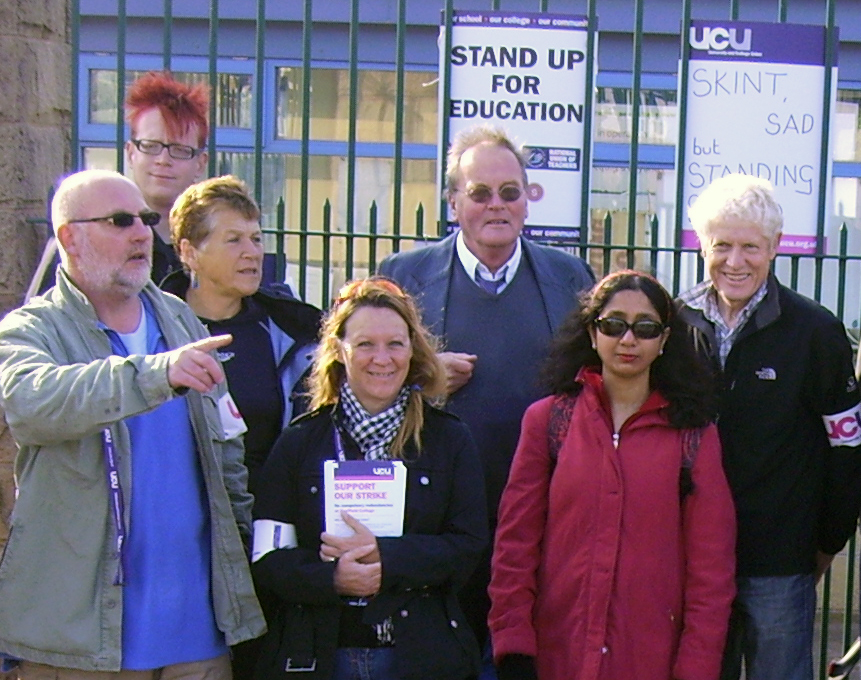As the University and College Union (UCU) met for its annual congress in Harrogate (28-30 May), almost certainly the most important debates in the higher education (HE) conference section concerned pensions.
UCU has quite rightly committed itself to strike action on 30 June in defence of the Teachers’ Pension Scheme (TPS), alongside a number of other public sector unions.
This is an important first step in defending TPS, in conjunction with teachers in schools who share this scheme. It is also vitally important in building a common campaign with other public sector unions to decisively reject the ‘Hutton report’ proposals on pensions.
However, regarding the pension scheme for the old pre-1992 universities – the Universities Superannuation Scheme (USS) – UCU higher education delegates narrowly rejected a motion calling for the final salary principle to be non-negotiable.
As a result, the union’s USS pensions negotiators can now explore a possible settlement based on ‘career average’ salaries for some parts of the scheme – although the employers may well still refuse to talk to the union without a very aggressive programme of industrial action!
Whilst all socialists must accept the democratic authority of the union conference, this decision will probably prove to be a basic mistake for UCU, potentially conceding the operation of dual schemes and creating a slippery slope.
However, conference did carry a Manchester University motion instructing the union to call national HE delegate conferences to review progress in the dispute and before putting any deal to the membership.
This may re-open the debate on the final salary vs career average salary aspect, once conference delegates report back to their branches and respond to membership reaction to this decision.
Further Education sector
There were no surprises at the further education (FE) sector conference where the many serious issues facing college staff and students were discussed and debated.
Longstanding issues such as punitive lesson observation schemes, contracts, casualisation, and principals’ pay, received attention once again – quite rightly.
However, fierce new battles have loomed large since the Con-Dem government came to power. Conference reiterated its opposition to the scrapping of the Education Maintenance Allowance and pledged to continue to campaign with other unions and the National Union of Students to ensure that financial support is provided so that all young people can access post-16 education and training.
The Action for ESOL campaign was congratulated and supported for its demands for fully-funded English language provision for all who need it and cannot afford to contribute to the cost, and the preservation of ESOL departments and teaching posts.
The relatively short agenda of the conference allowed for a full and vitally important discussion of the attack on pensions. UCU members in FE took strike action on 24 March in defence of TPS and the sector is committed to further action with the NUT and other unions on 30 June.
Conference also called for a relaunching of UCU’s Manifesto for Education – as part of its defence of the FE sector, jobs, pay and conditions. Never has this been more important, at a time of unprecedented attacks on access to education for working-class people, and on all those who work in FE and community education.
Moving away from action?
UCU called on the TUC to a organise a 24-hour general strike across the public sector against the cuts and a second “march for the alternative” in autumn 2011.
However, Sally Hunt, the UCU general secretary gave a speech that was both a surreptitious call for re-election and a call for the realignment of the union away from the more militant path it has taken in the wake of the student protests last year and towards a more conciliatory, ‘professional’ position.
Hunt called for the union to prepare for the introduction of local bargaining, withdrawing from the union’s previous position. In order to placate activists she argued that the union should provide more legal support for caseworkers and increase the number of union officials in order to do this.
In effect Hunt’s speech was a call for conciliation with the privatising Con-Dem government and a viewpoint that cuts to public spending in education cannot be reversed.
At a time when the union movement is slowly moving towards collective action and the key date of 30 June is looming, this is at best defeatist and is not what the movement requires.
Education at both FE and HE level is a public right and education professionals should be at the forefront of fighting for this principle. What is needed from the UCU is a strong, militant position, joining with other unions to defeat the government and work towards an equitable education system that works for all, regardless of income.









